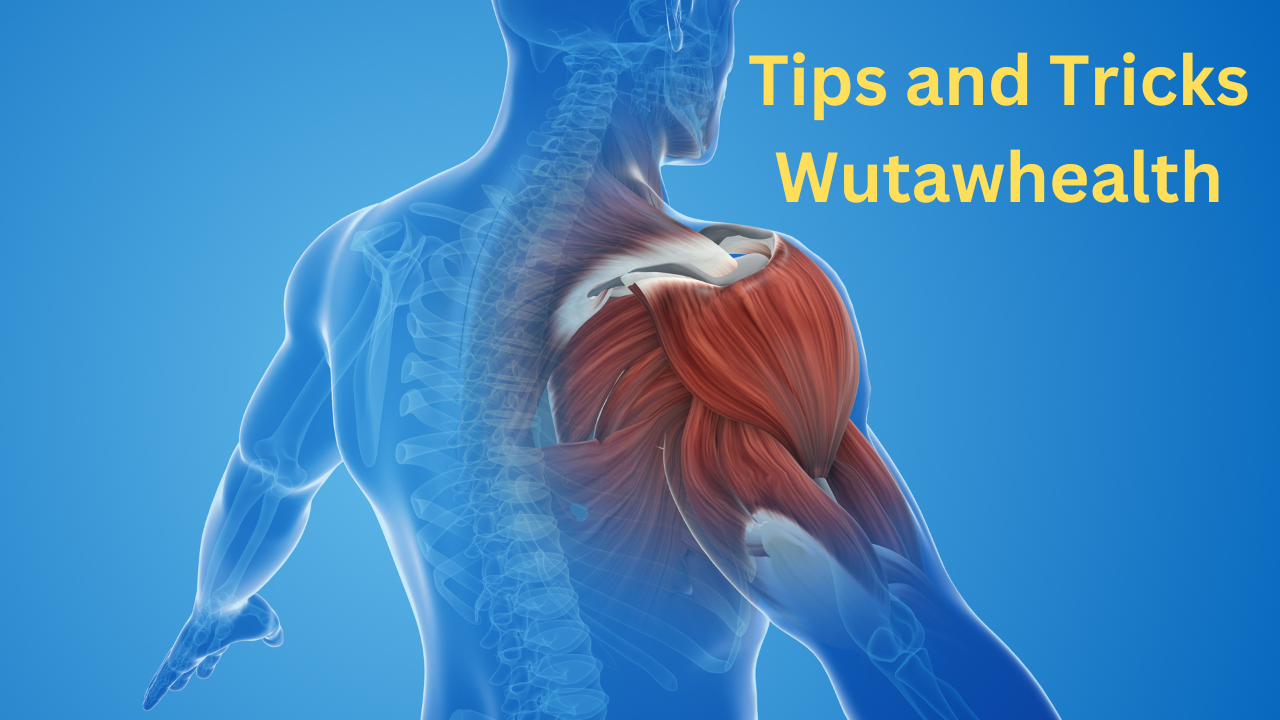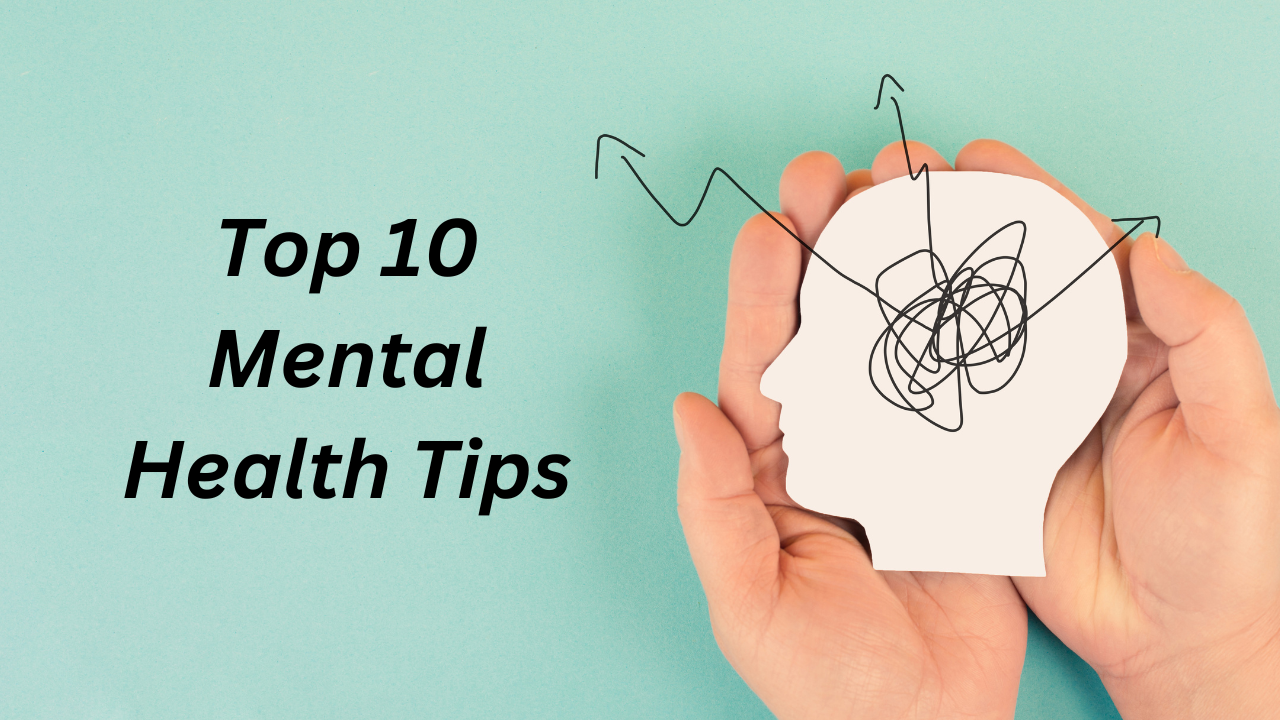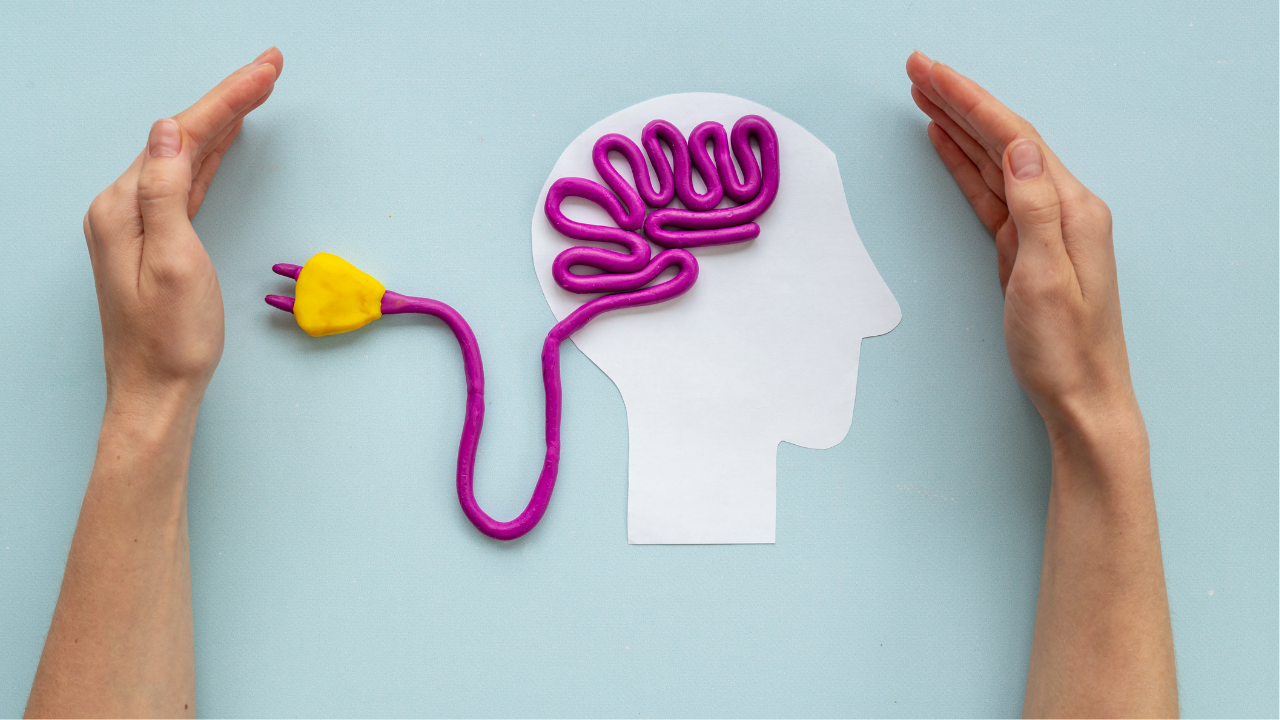Tips and Tricks Wutawhealth
Achieving optimum health is one primary objective people have set for themselves, but with the plethora of information available at your fingertips, it gets awfully confusing as to where to begin. Whether you are looking for ways to lose weight, improve your fitness, better your mental health, or maybe generally start a more balanced lifestyle, the path to wellness can be eased with just the right information and resources. This article comprehensively guides you on the best tips and tricks when it comes to general health and well-being, aggregating physical, mental, and nutritional advice.
but with the plethora of information available at your fingertips, it gets awfully confusing as to where to begin. Whether you are looking for ways to lose weight, improve your fitness, better your mental health, or maybe generally start a more balanced lifestyle, the path to wellness can be eased with just the right information and resources. This article comprehensively guides you on the best tips and tricks when it comes to general health and well-being, aggregating physical, mental, and nutritional advice.
1. Understanding the Basics of Health
Let me first explain what I mean by the concept of health. Contrary to popular thought, health is not just the opposite of being ill but rather a balanced condition in which both the body and mind are functioning at their very best. It refers to fitness, physical as well as mental, associated with a well-assimilated diet. All these aspects go together to form the complete well-being. Now, let’s break these down further.
Physical Health
Exercise:
Engaging in routine physical activity is part of fundamental health. Exercise helps maintain body weight but also helps keep cardiovascular health, improves lung capacity, and builds bones and muscles.
Sleep:
Sleep is vital for rest and repair, especially when the body is extended. Ideally, you would sleep for 7-9 hours to allow your body to recover and repair itself.
Mental Health
Stress Management:
Chronic stress negatively impacts physical health by raising the level of blood pressure, increasing insomnia, and impaired immunity. Mindfulness techniques, meditation, and hobbies are essential for proper stress management.
Social Connections:
Man being a social animal, he achieves big successes in maintaining healthy relationships that promote good mental and emotional well-being.
Nutritional Health
Balanced diet:
A diet full of whole foods, including vegetables, fruits, whole grains, lean meats, and healthy fats, will ensure there are ample nutrients to allow the body to function well.
Adequate hydration:
Water is in the body and serves as a facilitator for most bodily functions. These include regulating the body temperature as well as the removal of toxins from the body. Drinking enough water forms another straightforward health tip that is ignored.
2. Top 10 Tips for Physical Health Improvement
Now that the basics are addressed, we proceed to the useful and practical tips to enhance your bodily fitness:
Tip 1: Engage in strength training
Cardio or running and cycling are great for keeping the heart healthy, but so too is strength training because it increases muscle mass, boosts the density of bones, and improves metabolic function. Do it at least twice a week with an emphasis on major muscle groups.
but so too is strength training because it increases muscle mass, boosts the density of bones, and improves metabolic function. Do it at least twice a week with an emphasis on major muscle groups.
Tip 2: Attempt at functional movement
Functional movements help your body adapt to act more naturally and smoothly and take on real-life actions like performing a squat, lunge, or push-up with greater precision and less risk of injury in your daily life.
Tip 3: Stretch It.
Stretching regularly is beneficial for improving flexibility, reducing muscle stiffness, and preventing injury. Stretching daily, either in the morning or after your workout, can greatly increase your range of motion and prevent strains.
Tip 4: Focus on Recovery
Muscle fibers break down during exercise, and it is during the recovery phase that those muscles grow stronger. In addition to sleep, tools such as foam rolling, massages, and even contrast baths will speed up recovery and enhance the prevention of injury.
Tip 5: Leverage Interval Training for effectiveness in Workouts
Using the entire body to move with High-Intensity Interval Training burns calories and improves cardiovascular fitness in the shortest time possible. Alternating between short periods of intense physical activity and recovery periods boosts endurance and fat loss in a shorter span of time compared to steady-state cardio.
Tip 6: Engage in Activities That You Enjoy
Most people quit working out because they don’t like what they are doing. From dancing to swimming to hiking, finding physical activities you love makes sticking to a workout plan much easier.
Tip 7: Track Your Progress
Wearable fitness tracking or tracking workouts helps to keep motivated and observe just how much one has improved over time. Recording progress like how much weight one lost, strength gained, or improved stamina urges more practice and dedication.
Tip 8. Don’t Neglect Your Core
A well-developed core can almost support every movement you make. Core muscles strengthen through a plank, leg raises, and bicycle crunches and may help you improve your posture and balance and protect you from back pain.
Tip 9: Maintain Good Posture Throughout the Day
The correct posture reduces the stretch of muscles and joints and, therefore, throws out the chance of leading to pain or bruising that one particular area. Try keeping your back straight when sitting or standing and include exercises to strengthen postural muscles.
Tip 10: Start Walking Daily
Walking is one of the easiest forms of exercise yet one of the most health-beneficial. A 30-minute walk a day can improve your cardiovascular health, help with weight loss, and reduce risk from chronic diseases such as diabetes and heart disease.
Top 10 Mental Health Tips
There is no difference between mental and physical health because mental health is as important as physical health. A sound mind helps you make good decisions, reduce the pressures of stress, and even improves the quality of your life. Here are some proven tips to boost your mental health:
A sound mind helps you make good decisions, reduce the pressures of stress, and even improves the quality of your life. Here are some proven tips to boost your mental health:
Tip 1: Practice Mindfulness
Mindfulness is the state of living in the present, and it really helps to use less stress and anxiety. The simplest practices, such as paying attention to your breath or eating mindfully, will help bring you back to earth and clear your head.
Tip 2: Limit Screen Time
Even hours of sitting in front of the computer or phone can make people anxious and depressed, or even antisocial. The more time spent checking social media, the more anxiety, depression, or isolation a person might experience, so finding the right balance on phone and computer time is crucial. Regular breaks also help to counterbalance too much computer or phone time.
Tip 3: Establish a Gratitude Activity
The scientific literature suggests that engaging in an activity of gratitude makes people’s moods more positive, reduces their stress, and encourages positive emotions. Start each day by writing down a few things you are thankful for, no matter how insignificant they might seem.
Tip 4: Be Creative
Creative pursuits like painting, writing, or playing a musical instrument improve mental health by stimulating the brain and enabling an outlet for self-expression.
Tip 5: Sleep and Relax
Giving permission to yourself to rest is the key to not falling under the clutches of burnout. It may be a scheduled downtime in the day, a hobby, or just reading a book-so long as there’s a recharge on your mental batteries.
Tip 6: Foster Good Relationships
When we have close, supporting relationships, it decreases the sense of loneliness and adds a feeling of belonging. Find time always to give importance to friendships and family bonds.
Tip 7: Affirmations
Affirmations are positive statements you could say to yourself as positive self-talk. For instance, repeating something like “I am capable” or “I am enough” keeps rewiring your brain toward positivity and reduces self-doubt.
Tip 8: Learn to Say No
Knowing when and how to set your limits and say no is crucial to the care of one’s mental well-being. This is because too much responsibility can lead to undue stress and resentment if you keep saying yes just to prevent guilt feelings. Set clear limits for your own protection.
Tip 9: Seek Professional Help If You Need It
There’s no stigma attached to seeing a therapist or counselor when you need help; therapy can provide coping tools, a new perspective, and help you get on top of life.
Tip #10: Laugh Often
Laughter is a natural mood booster. It releases endorphins, reduces stress, and bonds people together. Schedule time to laugh with funny videos, friends that make you laugh, or a lighthearted book.
4. Top 10 Nutritional Health Tips
Nutrition forms the basis of good health. A balanced diet can prevent chronic diseases, improve energy levels, and help maintain a healthy weight. Here’s something you can do about it, along with some practical tips to optimize your nutrition.
Tip 1: Eat a Rainbow of Fruits and Vegetables
You want to have a variety because different colored fruits and vegetables offer different nutrients. So for instance, orange and yellow foods are high in beta-carotene, carrots and sweet potatoes, and green leafy vegetables, Tips and Tricks Wutawhealth iron and magnesium.
Tip #2: Include Healthy Fats
Not all fats are created equal. Healthy fats are found in avocados, nuts, seeds, and some types of fish, helping support brain function, reduce inflammation, and improve heart health.
Tip #3: Make Fiber Your Priority
It would be a terrible shame if one of your main reasons to take on the challenges of treatment for type 2 diabetes was damaged by problems in the gastrointestinal tract. Dietary fiber keeps things moving, regulating blood sugar levels and reducing cholesterol, so that complications don’t arise, such as constipation. To maximize dietary fiber, choose whole grains, legumes, fruits, and vegetables.
Water works both ways too. Dehydration will lead to fatigue, headaches, and loss of focus. Be sure to drink at least 8 cups of water per day. And if you are physically active, you need to make sure that you take in more water than this. Herbal teas can also be used for hydrating purposes, as can water-content foods such as watermelon and cucumber.
Tip 5: Reduce Processed Foods
Processed foods are chocked full of unhealthy fats, sugars, and sodium. Eat whole, minimally processed foods-ones that give your body the nutrients it needs without filling you up with extra junk.
Tip 6: Create Space for Controlled Portions
Healthy foods can lead to excessive weight gain if the portions are just too large. Be mindful of your portions, and you may wish to serve yourself on smaller dinner plates in order to keep your intake under control.
Tip #7: Eat More Frequently
Missing meals can make you more likely to overeat at a later time of day, and this prevents your metabolism from functioning properly. Eat balanced, filling meals and snacks throughout the day to help maintain your energy.
Tips and Tricks Wutawhealth
Tip 8: Add Probiotics to Your Diet
Probiotics are friendly bacteria beneficial to your gut. And they often come in the form of fermented food, like yogurt, kefir, sauerkraut, and kimchi, or are available as supplements.
FAQs
1. How often should I exercise to maintain good physical health?
To maintain good physical health, aim for at least 150 minutes of moderate-intensity aerobic exercise or 75 minutes of vigorous-intensity exercise each week. Additionally, incorporate strength training exercises at least two days a week.
2. What are some good exercises for beginners?
For beginners, start with activities such as walking, swimming, or cycling. Basic strength exercises like squats, lunges, push-ups, and planks are also great for building a strong foundation.
3. How can I reduce daily stress?
To reduce daily stress, consider practicing mindfulness, meditation, or deep breathing exercises. Engaging in activities you enjoy, taking breaks from work, and maintaining healthy social connections can also help manage stress.
4. What foods should I eat to improve my mental health?
Foods rich in omega-3 fatty acids, such as fatty fish, walnuts, and flaxseeds, support brain health. Additionally, whole grains, fruits, vegetables, and foods high in antioxidants like blueberries can boost mood and cognitive function.
5. How can I improve my sleep quality?
To improve sleep quality, establish a regular sleep schedule, avoid caffeine or heavy meals before bedtime, and create a calming bedtime routine. Ensure your sleeping environment is comfortable, dark, and free of distractions like electronics.
